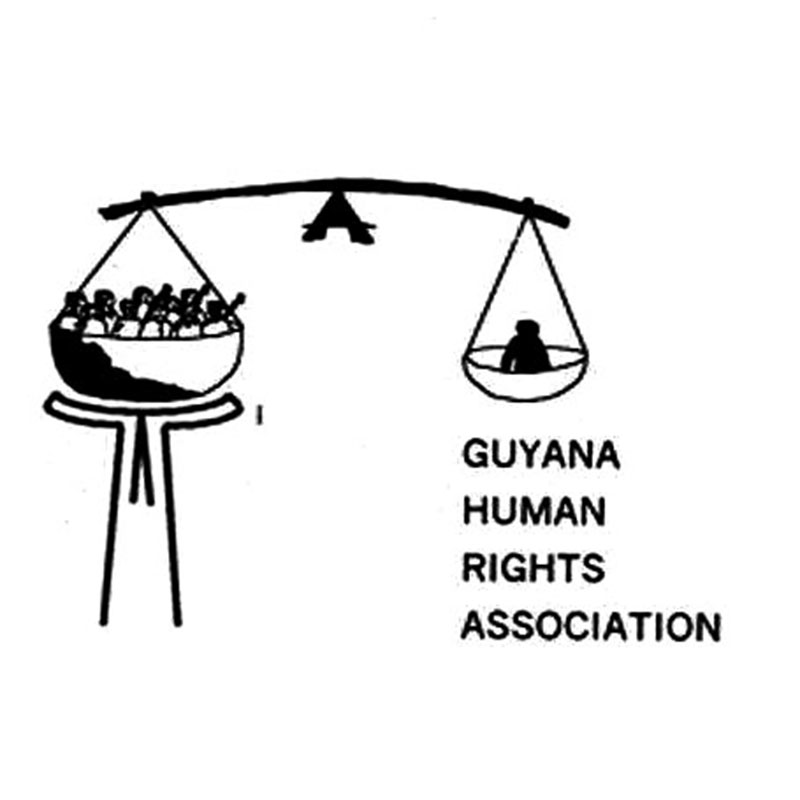The Guyana Human Rights Association yesterday called for policing reforms in Guyana, starting with an oversight body that will be apolitical but get the blessings of the parties for its constitution.
The stated intent to appoint the acting and over 55 years old Clifton Hicken as substantive Commissioner of the Guyana Police Force (GPF), and the “saga” surrounding Assistant Police Commissioner Calvin Brutus’s large bank accounts have triggered several questions about the GPF, the GHRA contended in a statement and was why reforms were needed.
“Whether through a National Commission on Democratic Policing or some other similar mechanism, a national conversation in partnership with communities is urgently needed to achieve a fundamental transition from a Guyana Police Force to a Guyana Police Service,” the GHRA statement said. It pointed out the decades of legal, ethical, constitutional and accountability issues affecting the GPF were only redeemable by “transformational reforms in all areas”.
The GHRA noted that the two major political parties were once again at logger-heads, this time over the constitutionality of President Irfaan Ali’s decision to confirm Hicken substantively in his post, despite him being over the age of retirement.
It noted that while Attorney-General Anil Nandlall claimed constitutional support could be found for the new appointment, opposition lawyers maintained that the Constitution only allowed extensions to existing posts for over-age officers, not promotions.
“This ongoing row vies for news-worthiness with the astonishing saga involving… Brutus and the Special Organized Crime Unit (SOCU)… Pervasive dysfunctionality in the Guyana Police Force is manifest in many ways,” the GPRA said in its statement.
“A retirement age at 55 years, for example, underlines the distance of the policing establishment from civilian life, in which many people would consider a person of 55 to be in their executive prime,” it added.
Former Auditor General Anand Goolsarran last week said that substantively appointing Hicken, who is one year past his retirement age, would be unconstitutional and illegal.
Nandlall had countered, defending his advice to the President, stating that Ali had last year given Hicken an indefinite duty extension in that capacity.
The statement also referred to “the startling facts – as revealed to the press by Mr Brutus that perks enjoyed by senior police officials are such that he has no need to spend his salary. This revelation was provided to explain his depositing $46.5 million over the counter at Demerara Bank.”
The GHRA said that besides SOCU’s questions on Brutus, “more disquieting are revelations about the millions of dollars of wedding and Christmas gifts to the police officer from businessmen, treated apparently as routine, judging by the revelations about them.”
In terms of accountability, it noted, the GPF was a civilian body accountable to Parliament, through the office of the Minister of Home Affairs, unlike the Guyana Defence Force (GDF), a military organization subject to the President as its Commander-in-Chief.
The Police Service Commission, which is appointed by the President, it noted, is absorbed in matters of promotion and administration and “is not convincingly impartial politically. There is therefore no body or mechanism specifically dedicated to oversight of the Guyana Police Force. Consequently, the momentum for evolution of the GPF as a modern police service tasked with ensuring accountability and promoting a peaceful, multi-cultural Guyana is non-existent. The more pervasive formative influence on the GPF remains the colonial militia in which it had its origins.”
The GHRA reasoned that the military characteristics of the GPF include the multiplicity of ranks of seniority; over-centralization which insulates the GPF against accountability to communities in which it functions; regional commanders with low or no status in communities and little control over budgets; police stations that appear more prepared to repel an assault than welcome community members and complete absorption and all-encompassing focus on crime-fighting rather than intelligence-led preventative security.
“Devolved agencies such as the Police Complaints Authority tend to become sinecures for retired judges and treated with disdain by the GPF itself. An attempt to change the name from ‘Force’ to ‘Service’ by former Commissioner Felix was brought to an abrupt end when his own tenure suffered an equally abrupt end. Against this summary background, it is clear that the symptoms afflicting the Guyana Police Force cannot be treatable as short-comings of this or that individual officer, or even this or that political party,” the GHRA statement said.
It recalled that “innumerable external consultations for reform have floundered amidst party politicking.”
While privatization of security enables the business sector to take care of itself, the GHRA stated, the cost of electronics, security firms and guard services further distances the well-off from the population in general.
“Nor can security as a national and public service be out-sourced to an unaccountable private sector. Moreover, with a much larger volume of money now moving through the society (hence the wedding gifts) accountable policing is becoming a more urgent requirement,” it contended.
Stressing that a reformation process was needed and the GHRA made recommendations thus:
“Develop a comprehensive reform programme to be promoted as a single package rather than something palatable to political parties. Make overcoming the militaristic view of police functions a major priority of the reform programme. Police service must be delivered in inclusive partnership with communities with maximum delegation of authority and make proposals to ensure independent professional scrutiny of policing services rather than rely on an internal Office of Professional Responsibility,” the statement proposed.
“Make recommendations with respect to management of public order events that impose exceptional demands on police resources. Create an oversight body by bi-partisan agreement to ensure broad-based receptivity of the commission. Along with technically-qualified people, membership of the commission must include persons with the energy and inclination for consulting widely in an active outreach programme, not sitting behind closed doors,” it added.






